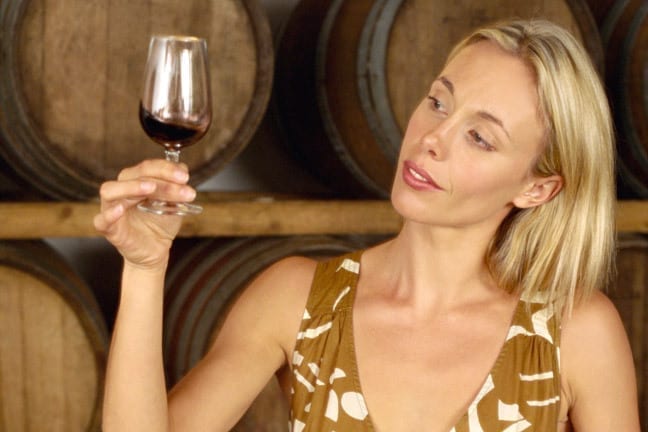Some of the country’s top-selling winemakers may have some legal trouble on their hands. A class action lawsuit has been filed against California winemakers for allegedly misrepresenting their arsenic-filled wine as safe for consumers.
After testing over 1,300 bottles of wine in the labs at BeverageGrades — a private company in Denver that tests alcoholic beverages for heavy metals, pesticides, and nutrition levels — founder Kevin Hicks found that about one-fourth of the top-selling wines had up to four and even five times the amount of arsenic that the EPA allows in drinking water, CBS News reports. The maximum amount allowed in water is 10 parts-per-billion.
Hicks noticed a correlation, too: The lower the wine’s price, the higher the arsenic level. For example, Trader Joe’s famous “Two-Buck Chuck” White Zinfandel had three times the limit, at 30 ppb. Menage à Trois Moscato had four times the limit. Franzia White Grenache had over five times, with 50 ppb. Hicks tried contacting some of the winemakers to tell them this, but his critiques weren’t exactly welcomed. So he presented the data to a law firm, which proceeded to file the suit.
According to the American Cancer Society, high levels of arsenic have been linked to several types of cancer. Yahoo Health cites another study which found that long-term exposure to low or moderate arsenic levels may increase your risk for cardiovascular disease, coronary heart disease, and stroke.
There are very few federal labeling requirements for wine, or any other alcoholic beverage for that matter. Some may argue that all the warnings in stores and on bottles about the potential problems alcohol can cause, especially for pregnant women, do enough. It’s also interesting to note that Canada’s standard for wine is 100 ppb.
Alan Smith, associate director of the arsenic health effects research program at UC Berkeley, told CBS that 50 ppb can be deadly over time, and that it has just as many effects on your body and health as cigarette smoking (hence the studies that point out its connection to some cancers). But a spokesman for The Wine Group (they make Franzia, Flip Flop and Cupcake wines) made a valid point: It wouldn’t be “accurate or responsible” to use the standard for water as the baseline for vino — we don’t drink it nearly as liberally (we need to drink water daily to survive; if we drank as much wine, we’d be in trouble for other reasons than arsenic).
More research needs to be done to determine how those elevated arsenic levels affect us according to the amount we ingest, which will be much lower for wine than water. But since arsenic generally isn’t a healthy ingredient anyway, check out this website that lists the wines that are included in the lawsuit. It might be time to graduate from that boxed Franzia to something a little classier anyway.
READ MORE: Kraft Recalled Over 6 Million Boxes of Mac’N’Cheese




































